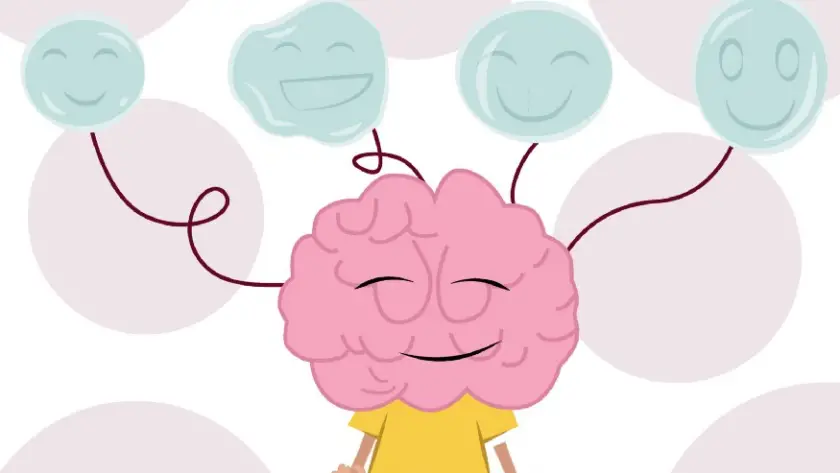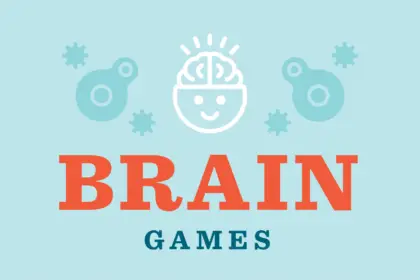Happiness is a universal pursuit, an elusive emotion we all yearn for. Countless poems have been written, songs composed, and scientific studies conducted, all seeking to unravel the mysteries behind this ephemeral state of being. While happiness might seem like an intangible concept, the human body harbors a remarkable arsenal of natural chemicals that play a crucial role in orchestrating our emotional well-being.
Endorphins, dopamine, oxytocin, and serotonin are four key neurochemicals that influence our mood and contribute to our sense of happiness and contentment. Often referred to as the “happy chemicals,” understanding the functions of these biochemical messengers can empower us to cultivate more joy and satisfaction in our lives.
In this article, we embark on an illuminating journey into the realm of neurochemistry to explore how endorphins, dopamine, oxytocin, and serotonin interact within our bodies. We’ll delve into the science behind their effects on our emotions, behaviors, and overall mental health.
Moreover, armed with this knowledge, we’ll reveal practical and evidence-based methods to stimulate the production of these happiness-inducing chemicals, providing you with a roadmap to fostering a happier and more fulfilled life.
The Feel Good Chemicals
In the intricate symphony of human emotions, endorphins, dopamine, oxytocin, and serotonin stand as the primary conductors. Each of these neurotransmitters plays a distinct role in influencing our feelings, behaviors, and overall mental health, and their harmonious interaction is key to our experience of happiness and well-being.
1. Endorphins: The Body’s Natural Painkillers and Euphoria Inducers
Endorphins are a class of neurotransmitters known as endogenous opioids, meaning they are produced within the body and have a similar effect to external opiates like morphine. Their main function is to block pain signals and induce feelings of euphoria, often described as the “runner’s high.”
Endorphins are typically released in response to stress or physical discomfort, but they can also be triggered by certain activities or experiences.
Effects on Emotions and Behavior: The release of endorphins leads to an immediate uplift in mood and a reduction in stress and anxiety. They create a sense of well-being and can even act as natural antidepressants.
Overall Mental Health Impact: Regularly experiencing endorphin-induced euphoria through activities like exercise, laughter, and pleasurable experiences can contribute to improved mental health and a greater ability to cope with life’s challenges.
Activities To Release Endorphins:
- Exercise Regularly: Engaging in physical activities like running, cycling, or even brisk walking can trigger the release of endorphins. Aim for at least 30 minutes of moderate exercise most days of the week.
- Laugh Out Loud: Laughter is a powerful endorphin-releasing activity. Watch a funny movie, spend time with humorous friends, or read a comical book to stimulate laughter.
- Have Good Sex: Intimacy and orgasm prompt the release of endorphins, promoting feelings of pleasure and connection.
- Dark Chocolate: Indulging in a small piece of dark chocolate can trigger the release of endorphins and provide a moment of indulgence.
- Get a Massage: Regular massages can help release tension and stimulate the production of endorphins.
- Dance It Out: Dancing to your favorite music can be a fun way to release endorphins and let go of stress.
2. Dopamine: The Neurotransmitter of Reward and Motivation
Dopamine is often associated with reward, pleasure, and motivation. It plays a crucial role in our brain’s reward system, which reinforces behaviors necessary for our survival and well-being. When we experience something enjoyable or achieve a goal, dopamine is released, creating a sense of pleasure and encouraging us to repeat those actions.
Effects on Emotions and Behavior: Dopamine is linked to feelings of pleasure, satisfaction, and motivation. It drives us to seek out rewards and pursue activities that bring us joy and fulfillment.
Overall Mental Health Impact: Healthy dopamine levels are vital for maintaining motivation, focus, and a positive outlook on life. Imbalances in dopamine can contribute to conditions such as depression, addiction, and certain mental disorders.
Activities That Release Dopamine:
- Finish a Task: Accomplishing a goal, no matter how small, can trigger a sense of achievement and release endorphins. Tackle your to-do list, and celebrate each completed task.
- Cook a Fresh Meal: Preparing and savoring a nutritious meal not only supports your physical health but also triggers a sense of accomplishment that releases endorphins.
- Bullet Journal: Organizing your thoughts and tasks in a bullet journal can create a sense of order and control, leading to the release of endorphins.
- Schedule Self-Care: Prioritize self-care activities that bring you joy and relaxation, like taking a warm bath or spending time with a beloved hobby.
- Complete a Puzzle: Engaging in puzzle-solving activities can be not only mentally stimulating but also rewarding, leading to endorphin release.
- Clean a Room: The sense of accomplishment after tidying up a cluttered space can trigger endorphin release.
3. Oxytocin: The Hormone of Connection and Bonding
Often referred to as the “love hormone” or “bonding hormone,” oxytocin is released in response to social interactions and physical touch. It plays a significant role in creating emotional bonds, trust, and intimacy between individuals, not only in romantic relationships but also in familial and social connections.
Effects on Emotions and Behavior: Oxytocin fosters feelings of warmth, trust, and empathy. It deepens our emotional connections and promotes nurturing behaviors, such as caregiving and altruism.
Overall Mental Health Impact: Oxytocin’s ability to strengthen social bonds can improve overall mental health and well-being by reducing feelings of loneliness and isolation. It also plays a role in reducing stress and anxiety.
Activities That Release Oxytocin
- Listen to Music: Listening to your favorite music, especially tunes that evoke positive emotions, can lead to a dopamine surge.
- Reward Yourself: Set small achievable goals and reward yourself with something you enjoy whenever you accomplish them.
- Acts of Kindness: Doing something kind for others not only enhances their well-being but also triggers a sense of reward and fulfillment in you, releasing dopamine.
- Phone a Friend: Connecting with friends or loved ones and sharing positive experiences can boost dopamine levels.
- Take a Yoga Class: Yoga and meditation practices can promote relaxation and elevate dopamine levels.
- 4-7-8 Breathing: Practicing the 4-7-8 breathing technique can calm your nervous system and enhance dopamine levels.
4. Serotonin: The Mood Regulator and Emotion Stabilizer
Serotonin is a neurotransmitter that regulates mood, emotions, and social behavior. It is involved in various physiological processes and plays a crucial role in balancing our overall emotional state.
Effects on Emotions and Behavior: Serotonin contributes to feelings of happiness, contentment, and emotional stability. It helps regulate mood, appetite, sleep, and sexual desire.
Overall Mental Health Impact: Adequate serotonin levels are essential for maintaining a positive mood and preventing conditions like depression, anxiety disorders, and mood swings. Low serotonin levels are often associated with feelings of sadness and even clinical depression.
Activities That Release Serotonin:
- Eat Clean Protein: Including protein-rich foods like fish, lean meats, tofu, and legumes in your diet can promote dopamine production.
- Gratitude List: Cultivate gratitude by writing down things you are thankful for each day, as this practice can stimulate dopamine production.
- Probiotics: Maintaining a healthy gut through probiotic-rich foods or supplements may positively impact dopamine production.
- Daily Meditation: Regular meditation can train your brain to experience greater contentment, leading to increased dopamine release.
- Sun Exposure: Spending time in natural sunlight can elevate mood and encourage the release of dopamine.
The Mental Health Boost of Fermented Foods
When we think of fermented foods, tangy pickles, bubbly kombucha, and sauerkraut may come to mind. However, beyond their delicious flavors and gut-friendly properties, these fermented delicacies harbor a hidden gem—the potential to support our mental well-being.
Emerging research has shed light on the symbiotic relationship between the gut and the brain, revealing how the consumption of fermented foods can positively impact our mood, cognitive function, and overall mental health. Fermented foods are rich in probiotics, which are live bacteria and yeasts that work wonders for our gut microbiome.
As the gut and brain are intricately connected through the gut-brain axis, a healthy gut ecosystem nurtured by probiotics can influence our brain chemistry, thus affecting our emotions and cognitive abilities. By consuming fermented foods regularly, we introduce these beneficial microorganisms into our digestive system, bolstering the population of good bacteria that play a significant role in mental health regulation.
The benefits of incorporating fermented foods into your diet go beyond supporting digestion and immunity. Studies have shown that the probiotics present in fermented foods can help alleviate symptoms of anxiety, depression, and stress by promoting the production of neurotransmitters like serotonin and GABA (gamma-aminobutyric acid), which are closely associated with mood regulation and relaxation.
Moreover, the anti-inflammatory properties of probiotics may contribute to reducing inflammation in the brain, further supporting overall mental well-being.
Start making your own probiotic rich foods in your own kitchen when you purchase: The Fermentation Method

Recipes on how to make everything from sourdough bread to pizza dough, salsa, chips, and even cinnamon rolls.
Click here to get Fermentation Method today!
The Interconnected Dance of Happiness: How to Nurture these Neurochemicals
Endorphins, dopamine, oxytocin, and serotonin do not work in isolation. Rather, they interact and influence each other, creating a delicate balance that impacts our overall emotional and mental well-being.
By consciously engaging in activities that stimulate the release of these happiness-inducing chemicals, we can positively influence our mood and mental health.
From exercising regularly and fostering social connections to practicing gratitude and acts of kindness, various lifestyle choices can support the production and release of these neurotransmitters. Additionally, seeking professional help and adopting healthy coping mechanisms can help address any imbalances in these chemicals and contribute to a more fulfilling and joyful life.
In conclusion, understanding the science behind endorphins, dopamine, oxytocin, and serotonin empowers us to take charge of our happiness and emotional well-being. By nurturing these natural chemicals within our bodies, we can cultivate a more positive and resilient mindset, fostering happiness that radiates from within.





